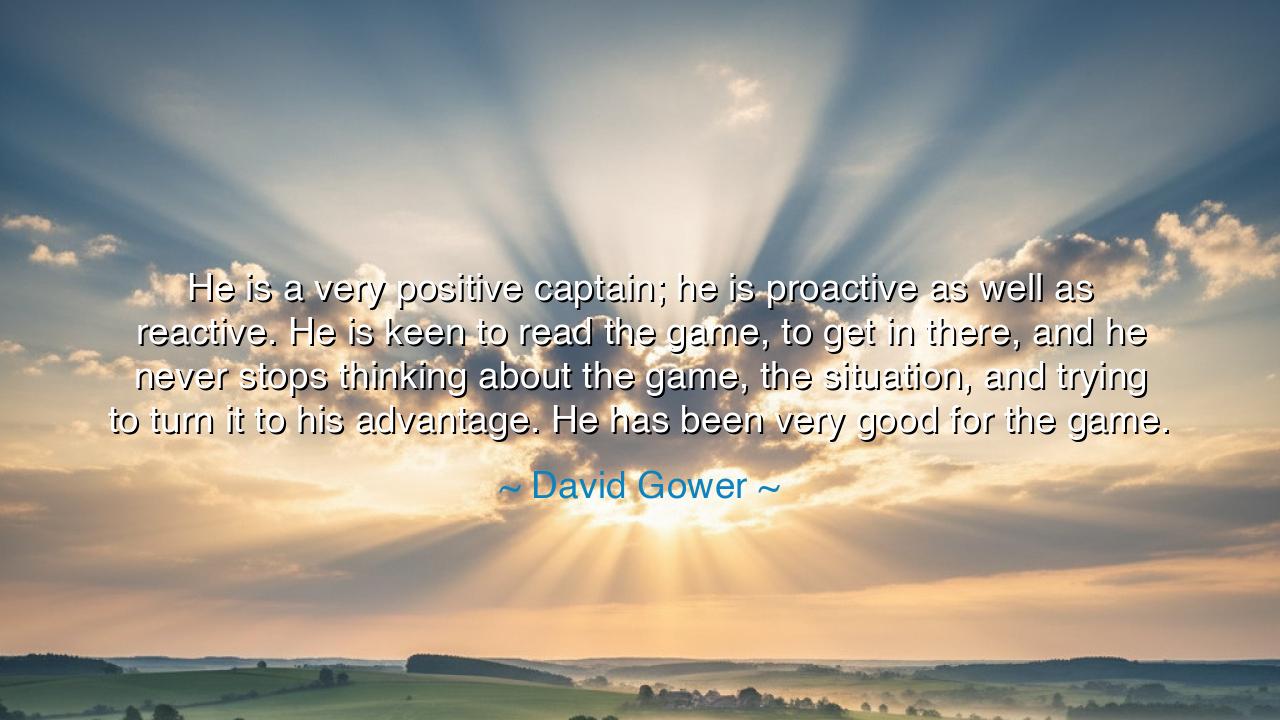
He is a very positive captain; he is proactive as well as
He is a very positive captain; he is proactive as well as reactive. He is keen to read the game, to get in there, and he never stops thinking about the game, the situation, and trying to turn it to his advantage. He has been very good for the game.






David Gower, himself a master of elegance upon the cricket field, once spoke of another leader with these words: “He is a very positive captain; he is proactive as well as reactive. He is keen to read the game, to get in there, and he never stops thinking about the game, the situation, and trying to turn it to his advantage. He has been very good for the game.” In this tribute, we hear the ancient praise of a warrior-chief, a leader whose mind is ever awake, whose spirit is both bold and adaptable, and whose presence elevates the field of battle—whether in sport, in state, or in life itself.
The essence of Gower’s wisdom lies in the balance between being proactive and reactive. A true leader does not merely wait for fate to strike, nor does he rush blindly ahead. He anticipates, he prepares, and yet when the unexpected comes, he adjusts with grace. To “read the game” is not simply to follow events, but to discern the hidden rhythms beneath them, to see not only what is, but what may be. Such a captain is not chained to fortune; he bends fortune toward himself.
History gives us a noble example in Alexander the Great. On the field of Gaugamela, outnumbered by the Persian host, he was both proactive—striking boldly with his cavalry—and reactive—adjusting swiftly to the maneuvers of his foe. His mind never ceased turning, shaping the chaos of battle into opportunity. Like the captain Gower describes, Alexander’s greatness lay not only in courage, but in the restless vigilance of thought, the hunger to seize each moment and transform it into victory.
Such qualities also uplift more than the leader himself; they ennoble the entire company. For when a captain is ever alert, ever striving, his men take heart. They fight not as scattered individuals, but as one body guided by vision. So too in sport: the players, seeing their leader’s tireless energy and strategic mind, find within themselves new resolve, and the game itself is enriched. This is why Gower declares him “very good for the game”—for a leader’s light does not shine only upon his own path, but upon all who walk beside him.
Let this teaching be remembered: to lead is not only to command, but to watch, to adapt, to dream, and to strive. The positive captain carries within him both fire and patience, both foresight and quickness of response. He is never idle, for his mind is ever at work, shaping adversity into advantage. And when such a one arises, whether on the field of play, the battlefield, or the councils of nations, he leaves behind not only victories, but a legacy of greatness for all who follow.






AAdministratorAdministrator
Welcome, honored guests. Please leave a comment, we will respond soon